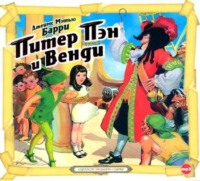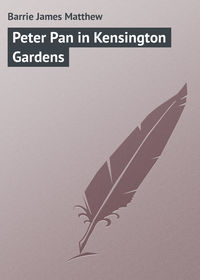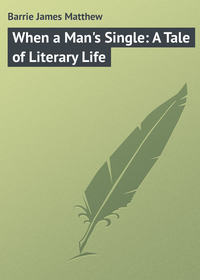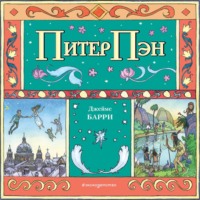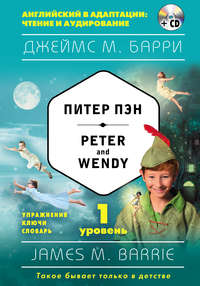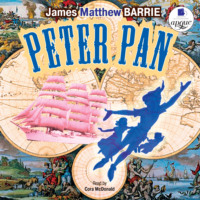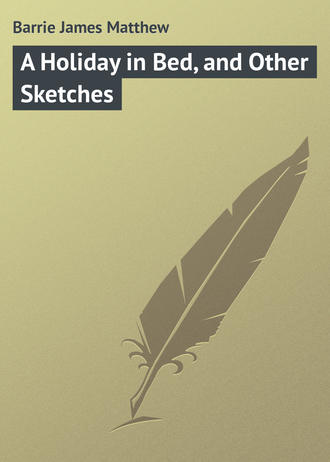 полная версия
полная версияA Holiday in Bed, and Other Sketches
THOUGHTFUL BOYS MAKE THOUGHTFUL MEN
Urquhart is a boy who lives in fear that his friends and relations will send him the wrong birthday presents. Before his birthday came round this year, he dropped them pretty broad hints as to the kind of gift he would prefer, supposing they meant to remember the occasion. He worked his people differently, according to the relationship that existed between him and them. Thus to his mother he simply wrote, "A fishing-rod is what I want;" but to an uncle, from whom there was only the possibility of the present, he said, "By the way, next Monday week is my birthday, and my mother is going to send me a fishing-rod. Wouldn't it be jolly rot if any other body sent me a fishing-rod? – Your affectionate and studious nephew, Thomas Urquhart." To an elderly lady, with whom he had once spent part of his summer holiday, he wrote, "By-the-bye" (he always came to the point with by-the-bye), "next Monday week is my birthday. I am wondering if anybody will send me a cake like the ones you bake so beautifully."
That lady should, of course, figuratively have punched Urquhart's head, but his communication charmed her. She did not, however, send him a cake. He had a letter from her in a few days, in which, without referring to his insinuating remarks about his birthday and her cakes, she expressed a hope that he was working hard. Urquhart thought this very promising, and sent a reply that undid him. "I am sweating," he said, "no end; and I think there is no pleasure like perusing books. When the other chaps go away to play, I stay at the school and peruse books." After that Urquhart counted the old lady among his certainties, and so she was, after a manner. On his birthday he received a gift from her, and also a letter, in which she said that her original intention had been to send him a cake. "But your nice letter," she went on, "in which you say you are fond of reading, reminds me that you are getting to be a big boy, so I send you a book instead," Urquhart anxiously undid the brown paper in which the book was wrapped. It was a volume of mild biographies, entitled, "Thoughtful Boys Make Thoughtful Men."
From its first appearance among us, this book caused a certain amount of ill-feeling. I learned by accident that Urquhart, on the strength of the lady's letter, had stated for a fact to his comrades that she was going to send him a cake. He had also taken Fleming Secundus to a pastry-cook's in the vicinity of the school, and asked him to turn his eyes upon a cake which had the place of honor in the centre of the window. Secundus admitted with a sigh that it was a beauty. Without comment Urquhart led him to our local confectioner's, and pointed out another cake. Secundus again passed favorable criticism, the words he used, I have reason to believe, being "Oh, Crikey!" By this time Urquhart had exhausted the shops of an interesting kind in our neighborhood, and he and his companion returned to the school. For a time Urquhart said nothing, but at last he broke the silence. "You saw yon two cakes?" he asked Secundus, who replied, with a smack of the lips, in the affirmative. "Then let me tell you," said Urquhart, solemnly, "that the two of them rolled together don't come within five miles of the cake I'm to get on my birthday." Tremendous news like this spreads through a school like smoke, and Urquhart was courted as he had never been before. One of the most pitiful cases of toadyism known to me was witnessed that very day in the foot-ball field. I was playing in a school match on the same side as Urquhart and a boy called Cocky Jones by his associates because of his sublime impertinence to his master. While Urquhart was playing his shoelace became loosened, and he stooped to tie it. "I say, Urquhart," cried Cocky, "let me do that for you!" It will thus be seen, taking one thing with another, that Urquhart's confidence in the old lady had raised high hopes. "Is this the day Urquhart gets his cake?" the "fellows" asked each other. Consider their indignation when he got, instead, "Thoughtful Boys Make Thoughtful Men." Secundus refused to speak to him; Williamson, Green, Robbins, Tosh and others scowled as if he had stolen their cake; Cocky Jones kicked him and bolted.
The boy who felt the disappointment most was, however, Urquhart himself. He has never been a shining light in his classes, but that day he stumbled over the Latin grammar at every step. From nine to ten he was quiet and sullen, like one felled by the blow. It is, I believe, notorious that in a fair fight Cocky Jones could not stand up before Urquhart for a moment; yet, when Cocky kicked, Urquhart did not pursue him. Between ten and eleven, Urquhart had a cynical countenance, which implied that his faith in humanity was gone. By twelve he looked fierce, as if he meant to write his benefactress, and give her a piece of his mind. I saw him during the dinner-hour in hot controversy with Green and Tosh, who were evidently saying that he had deceived them. From this time he was pugnacious, like one determined to have it out with somebody, and as he can use his fists, this mood made his companions more respectful. Fleming Secundus is his particular chum, and after the first bitterness of disappointment, Secundus returned to his allegiance. He offered to mark Cocky Jones' face, I fancy, for I saw him in full pursuit of Cocky in the playground. Having made it up, he and Urquhart then discussed the matter calmly in a corner. They had several schemes before them. One was to send the book back, saying that Urquhart had already a copy of it.
"But, I haven't," said Urquhart.
"Williamson has read it, though," said Secundus, as if that was much the same thing.
"But though we did send it back," Urquhart remonstrated, "the chances are that she would send me another book in its place."
His faith, you see, had quite gone.
"You could tell her you had got such a lot of books that you would prefer a cake for a change?"
Urquhart said that would be putting it too plain.
"Well, then," said Secundus, "even though she did send you another book, it would perhaps be a better one than that. Tell her to send 'The Boy Crusoes.' I haven't read it."
"I have, though," said Urquhart.
"Well, she could send 'The Prairie Hunters.'"
"She's not the kind," said Urquhart. "It's always these improving books she buys."
Ultimately the two boys agreed upon a line of action which was hardly what the reader might expect. Urquhart wrote letters of thanks to all those who had remembered his birthday, and to the old lady the letter which passed through my hands read as follows:
"Dear Miss – :
I sit down to thank you very faithfully for your favor, namely, the book entitled 'Thoughtful Boys Make Thoughtful Men.' It is a jolly book, and I like it no end better than a cake, which would soon be ate up, and then nothing to show for it. I am reading your beautiful present regular, and hoping it will make me a thoughtful boy so as I may be a thoughtful man, no more at present,
I am, Dear Miss – ,Your very sincere friend,Thomas Urquhart."Our boys generally end up their letters in some such way as that, it being a method of making their epistles cover a little more paper. As I feared, Urquhart's letter was merely diplomatic. He had not come round to the opinion that after all a book was better than the cake, but he had seen the point of Fleming's sudden suggestion, that the best plan would be to "keep in" with his benefactress. Secundus had shown that if Miss M – was bothered about this year's present, she would be less likely to send anything next year, and this sank into Urquhart's mind. Hence the tone of his letter of thanks.
It remains to follow the inglorious career of this copy of "Thoughtful Boys make Thoughtful Men." First, Urquhart was openly contemptuous of it, and there seemed a probability of its only being used as a missile. Soon, however, he dropped hints that it was a deeply interesting story, following these hints up with the remark that he was open to offers. He and Fleming Secundus had quite a tiff about it, though they are again good friends. Secundus, it appears, had gone the length of saying that it was worth a shilling, and had taken it to his bed to make sure of this. Urquhart considered it as good as bought, but Secundus returned it to him next day. Examination of the book roused the suspicions of Urquhart, who charged Secundus with having read it by peeping between the pages, which, to enhance its commercial value, had remained uncut. This Secundus denied, but he had left the mark of his thumb on it. Eventually the book was purchased by Cocky Jones, but not without a row. Cocky went up to Urquhart one day and held out a shilling, saying that he would give it for "Thoughtful Boys Make Thoughtful Men." The owner wanted to take the shilling at once, and give up the book later in the day, but Cocky insisted on its being put into his hands immediately. That Jones should be anxious to become the possessor of an improving book surprised Urquhart, but in his haste to make sure of the shilling, he handed over "Thoughtful Boys Make Thoughtful Men." Within an hour of the striking of this bargain a rumor reached Urquhart's ears that Cocky had resold the work for one and sixpence. Inquiries were instituted, which led to a discovery. At our school there is a youth called Dicky Jenkinson, who, though not exactly a thoughtful boy, has occasional aspirations in that direction. Being for the moment wealthy, Jenkinson had remarked, in the presence of Cocky, that one and sixpence would not be too much to give for Urquhart's copy of "Thoughtful Boys Make Thoughtful Men." Feeling his way cautiously, Cocky asked whether he meant that the book would be cheap at one and sixpence to anybody who wanted it, or whether he (Dicky) was willing and able to expend that sum on it. Thus brought to bay, Jenkinson solemnly declared that he meant to make Urquhart an offer that very day. Cocky made off to think this matter over, for he was aware that the book had been already offered to Fleming Secundus for a shilling. He saw that by taking prompt action he might clear sixpence before bedtime. Unfortunately, he was not able to buy the book from Urquhart, for he was destitute of means, and he knew it would be mere folly to ask Urquhart for credit. In these painful circumstances he took Robbins into his confidence. At first he merely asked Robbins to lend him a shilling, and Robbins merely replied that he would do no such thing. To show that the money would be returned promptly, Cocky then made a clean breast of it, after which Robbins was ready to lend him an ear. Robbins, however, stipulated that he should get half of the spoils.
Cocky, as has been seen, got the book from Urquhart, but when it came to the point, Jenkinson was reluctant to part with the one and sixpence. In this extremity Cocky appealed to Robbins, who at once got hold of Dicky and threatened to slaughter him if he did not keep to his bargain. Thus frightened, Jenkinson bought the book.
On hearing of this, Urquhart considered that he had been swindled, and set off in quest of Cocky. That boy was not to be found, however, until his threepence had disappeared in tarts. I got to know of this affair through Robbins' backing up of Cocky, and telling Urquhart that nobody was afraid of him. A ring was immediately formed round Urquhart and Robbins, which I had the pleasure of breaking up.
Since I sat down to write the adventures of "Thoughtful Boys Make Thoughtful Men," I have looked through the book. Jenkinson read several chapters of it, and then offered it for next to nothing to anybody who had a fancy for being thoughtful. As no bidder was forthcoming, he in the end lost heart and presented it to the school library. A gentleman who visited us lately, and looked through the library, picked it up, and said that he was delighted to observe that the boys kept their books so clean. Yet not so long ago he was a boy at our school himself.
IT
As they were my friends, I don't care to say how it came about that I had this strange and, I believe unique, experience. They considered it a practical joke, though it nearly unhinged my reason. Suffice it that last Wednesday, when I called on them at their new house, I was taken up stairs and shown into a large room with a pictorial wall paper. There was a pop-gun on the table and a horse with three legs on the floor. In a moment it flashed through my mind that I must be in a nursery. I started back, and then, with a sinking at the heart, I heard the key turn in the lock. From the corner came a strange uncanny moan. Slowly I forced my head round and looked, and a lump rose in my throat, and I realized that I was alone with It.
I cannot say how long I stood there motionless. As soon as I came to myself I realized that my only chance was to keep quiet. I tried to think. The probability was that they were not far away, and if they heard nothing for a quarter of an hour or so they might open the door and let me out. So I stood still, with my eyes riveted on the thing where It lay. It did not cry out again, and I hoped against hope that It had not seen me. As I became accustomed to the room I heard It breathing quite like a human being. This reassured me to some extent, for I saw that It must be asleep. The question was – Might not the sleep be disturbed at any moment, and in that case, what should I do? I remembered the story of the man who met a wild beast in the jungle and subjugated it by the power of the human eye. I thought I would try that. All the time I kept glaring at It's lair (for I could not distinguish itself), and the two things mixed themselves up in my mind till I thought I was trying the experiment at that moment. Next it struck me that the whole thing was perhaps a mistake. The servant had merely shown me into the wrong room. Yes; but why had the door been locked? After all, was I sure that it was locked? I crept closer to the door, and with my eyes still fixed on the corner, put my hand gently – oh, so gently! – on the handle. Softly I turned it round. I felt like a burglar. The door would not open. Losing all self-control, I shook it; and then again came that unnatural cry. I stood as if turned to stone, still clutching the door handle, lest It should squeak if I let It go. Then I listened for the breathing. In a few moments I heard It. Before It had horrified me; now It was like sweet music, and I resumed breathing myself. I kept close to the wall, ready for anything; and then I had a strange notion. As It was asleep, why should I not creep forward and have a look at It? I yielded to this impulse.
Of course I had often seen Them before, but always with some responsible person present, and never such a young one. I thought It would be done up in clothes, but no, It lay loose, and without much on. I saw Its hands and arms, and It had hair. It was sound asleep to all appearances, but there was a queer smile upon Its face that I did not like. It crossed my mind that It might be only shamming, so I looked away and then turned sharply around to catch It. The smile was still there, but It moved one of Its hands in a suspicious way. The more I looked the more uncomfortable did that smile make me. There was something saturnine about It, and It kept it up too long. I felt in my pocket hurriedly for my watch, in case It should wake; but, with my usual ill-luck, I had left it at the watchmaker's. If It had been older I should not have minded so much, for I would have kept on asking what Its name was. But this was such a very young one that It could not even have a name yet. Presently I began to feel that It was lying too quietly. It is not Their nature to be quiet for any length of time, and, for aught I knew, this one might be ill. I believe I should have felt relieved if It had cried out again. After thinking it over for some time I touched It to see if It would move. It drew up one leg and pushed out a hand. Then I bit my lips at my folly, for there was no saying what It might do next. I got behind the curtain, and watched It anxiously through a chink. Except that the smile became wickeder than ever, nothing happened. I was wondering whether I should not risk pinching It, so as to make It scream and bring somebody, when I heard an awful sound. Though I am only twenty, I have had considerable experience of life, and I can safely say that I never heard such a chuckle. It had wakened up and was laughing.
I gazed at It from behind the curtain; Its eyes were wide open, and you could see quite well that It was reflecting what It ought to do next. As long as It did not come out I felt safe, for It could not see me. Something funny seemed to strike It, and It laughed heartily. After a time It tried to sit up. Fortunately Its head was so heavy that It always lost its balance just as It seemed on the point of succeeding. When It saw that It could not rise, It reflected again, and then all of a sudden It put Its fist into Its mouth. I gazed in horror; soon only the wrist was to be seen, and I saw that It would choke in another minute. Just for a second I thought that I would let It do as It liked. Then I cried out, "Don't do that!" and came out from behind the curtain. Slowly It moved Its fist and there we were, looking at each other.
I retreated to the door, but It followed me with Its eyes. It had not had time to scream yet, and I glared at It to imply that I would stand no nonsense. But, difficult though this may be to believe, It didn't scream when It had the chance. It chuckled instead and made signs for me to come nearer. This was even more alarming than my worst fears. I shook my head and then my fist at It, but It only laughed the more. In the end I got so fearful that I went down on my hands and knees, to get out of Its sight. Then It began to scream. However, I did not get up. When they opened the door they say I was beneath the table, and no wonder. But I certainly was astonished to discover that I had only been alone with It for seven minutes.
TO THE INFLUENZA
The time has come for you to leave this house. Seventeen days ago you foisted yourself upon me, and since then we have been together night and day. You were unwelcome and uninvited, and you made yourself intensely disagreeable. We wrestled, you and I, but you attacked me unawares in the back, and you threw me. Then, like the ungenerous foe that you are, you struck me while I was down. However, your designs have failed. I struggle to my feet and order you to withdraw. Nay, withdraw is too polite a word. Your cab is at the door; get out. But, stop, a word with you before you go.
Most of your hosts, I fancy, run you out of their houses without first saying what they think of you. Their one desire is to be rid of you. Perhaps they are afraid to denounce you to your face. I want, however, to tell you that I have been looking forward to this moment ever since you put me to bed. I said little while I was there, but I thought a good deal, and most of my thoughts were of you. You fancied yourself invisible, but I saw you glaring at me, and I clenched my fists beneath the blankets. I could paint your portrait. You are very tall and stout, with a black beard, and a cruel, unsteady eye, and you have a way of crackling your fingers while you exult in your power. I used to lie watching you as you lolled in my cane-chair. At first it was empty, but I felt that you were in it, and gradually you took shape. I could hear your fingers crackling, and the chair creak as you moved in it. If I sat up in fear, you disappeared, but as soon as I lay back, there you were again. I know now that in a sense you were a creature of my imagination. I have discovered something more. I know why you seemed tall and stout and bearded, and why I heard your fingers crackling.
Fever – one of your dastard weapons – was no doubt what set me drawing portraits, but why did I see you a big man with a black beard? Because long ago, when the world was young, I had a schoolmaster of that appearance. He crackled his fingers too. I had forgotten him utterly. He had gone from me with the love of climbing for crows' nests – which I once thought would never die – but during some of these seventeen days of thirty-six hours each I suppose I have been a boy again. Yet I had many schoolmasters, all sure at first that they could make something of me, all doleful when they found that I had conscientious scruples against learning. Why do I merge you into him of the crackling fingers? I know. It is because in mediæval times I hated him as I hate you. No others have I loathed with any intensity, but he alone of my masters refused to be reconciled to my favorite method of study, which consisted, I remember (without shame) in glancing at my tasks, as I hopped and skipped to school. Sometimes I hopped and skipped, but did not arrive at school in time to take solid part in lessons, and this grieved the soul of him who wanted to be my instructor. So we differed, as Gladstonian and Conservative on the result of the Parnell Commission, and my teacher, being in office, troubled me not a little. I confess I hated him, and while I sat glumly in his room, whence the better boys had retired, much solace I found in wondering how I would slay him, supposing I had a loaded pistol, a sword, and a hatchet, and he had only one life. I schemed to be a dark, morose pirate of fourteen, so that I might capture him, even at his black-board, and make him walk the plank. I was Judge Lynch, and he was the man at the end of the rope. I charged upon him on horseback, and cut him down. I challenged him to single combat, and then I was Ivanhoe. I even found pleasure in conceiving myself shouting "Crackle-fingers" after him, and then bolting round a corner. You must see now why I pictured you heavy, and dark, and bearded. You are the schoolmaster of my later years. I lay in bed and gloried in the thought that presently I would be up, and fall upon you like a body of cavalry.
What did you think of my doctor? You need not answer, for I know that you disliked him. You and I were foes, and I was getting the worst of it when he walked in and separated the combatants. His entrance was pleasant to me. He showed a contempt for you that perhaps he did not feel, and he used to take your chair. There were days when I wondered at his audacity in doing that, but I liked it, too, and by and by I may tell him why I often asked him to sit there. He was your doctor as well as mine, and every time he said that I was a little better, I knew he meant that you were a little weaker. You knew it, too, for I saw you scowling after he had gone. My doctor is also my friend, and so, when I am well, I say things against him behind his back. Then I see his weaknesses and smile comfortably at them with his other friends – whom I also discuss with him. But while you had me down he was another man. He became, as it were, a foot taller, and I felt that he alone of men had anything to say that was worth listening to. Other friends came to look curiously at me and talk of politics, or Stanley, or on other frivolous topics, but he spoke of my case, which was the great affair. I was not, in my own mind, a patient for whom he was merely doing his best; I was entirely in his hands. I was a business, and it rested with him whether I was to be wound up or carried on as usual. I daresay I tried to be pleasant to him – which is not my way – took his prescriptions as if I rather enjoyed them, and held his thermometer in my mouth as though it were a new kind of pipe. This was diplomacy. I have no real pleasure in being fed with a spoon, nor do I intend in the future to smoke thermometers. But I knew that I must pander to my doctor's weakness if he was to take my side against you. Now that I am able to snap my fingers at you I am looking forward to sneering once more at him. Just at this moment, however, I would prefer to lay a sword flat upon his shoulders, and say gratefully, "Arise, Sir James." He has altered the faces of the various visitors who whispered to each other in my presence, and nodded at me and said aloud that I would soon be right again, and then said something else on the other side of the door. He has opened my windows and set the sparrows a-chirping again, and he has turned on the sunshine. Lastly, he has enabled me to call your cab. I am done. Get out.
FOUR-IN-HAND NOVELISTS
The following is a word-puzzle. It narrates the adventures of a four-in-hand novelist while trying to lose his reputation. Competitors do not require to be told that a four-in-hand novelist is a writer of fiction who keeps four serial tales running abreast in the magazines. The names of specimen four-in-hand novelists will recur readily to every one. The puzzle is to discover who this particular novelist is; the description, as will be observed, answering to quite a number of them.


